Yes, you can get your wisdom teeth removed while pregnant in certain situations, but the timing matters. The second trimester is considered the safest period if removal is necessary, while the first and third trimesters pose higher risks. Always consult both your dentist and OB-GYN to create a safe treatment plan that balances your oral health and your baby’s well-being.

Wisdom teeth are the last molars that erupt, usually between ages 17 and 25. Many people experience crowding, pain, or impaction when they come in.
During pregnancy, hormonal changes increase blood flow to the gums and raise the risk of swelling, gingivitis, and infection. This can make existing wisdom tooth issues worse. Pain, inflammation, or infection in the gums can become harder to manage during this time.
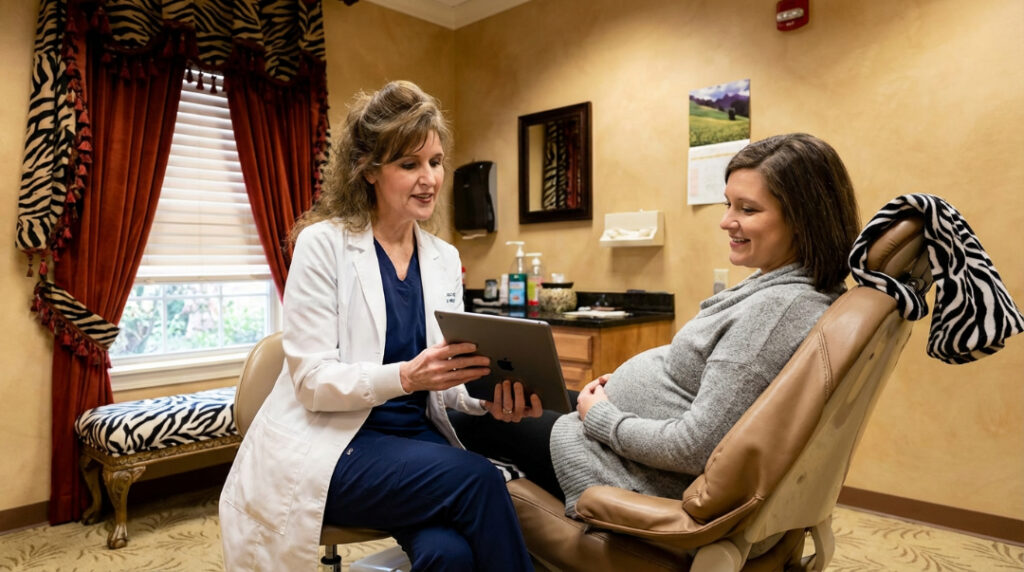
The answer depends on the trimester. Each stage of pregnancy brings different risks and considerations.
The first trimester is critical for the baby’s development. Major organs are forming. Medical experts typically recommend avoiding dental surgery at this stage unless the issue is life-threatening. Even though local anesthesia is generally safe, exposure to stress and medications is best minimized early in pregnancy.
The second trimester is considered the safest time for dental procedures. The baby’s major development is complete, and the risk of complications is lower. Most dentists and OB-GYNs agree that if surgery is unavoidable, this is the ideal window.
By the third trimester, lying back for a long procedure can put pressure on blood vessels and reduce circulation. This increases the risk of discomfort, fainting, or even preterm labor. Unless an emergency arises, dentists often recommend postponing surgery until after birth.
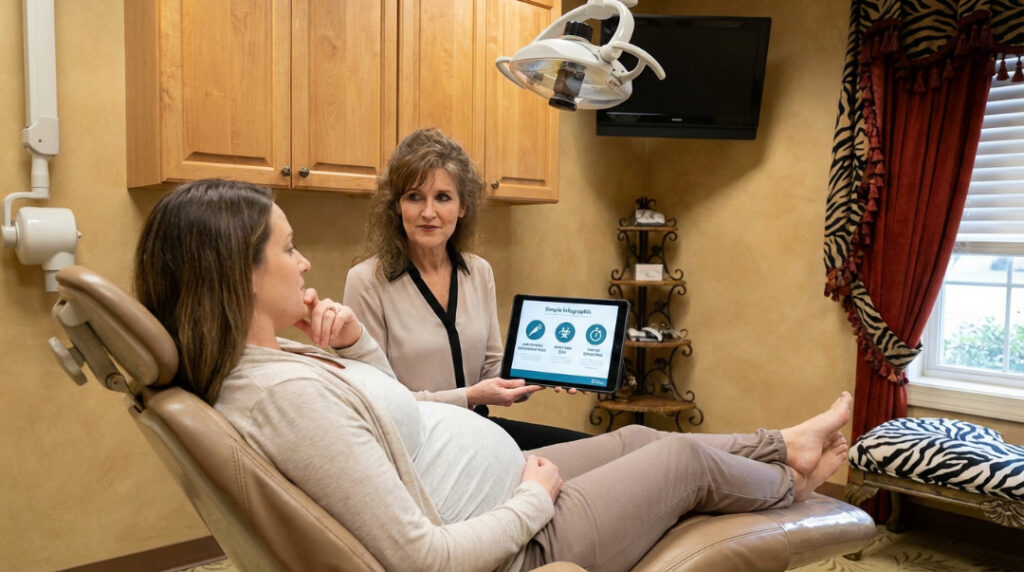
Local anesthesia, such as lidocaine, is generally considered safe during pregnancy. Dentists avoid high doses and always use the lowest amount required.
General anesthesia and nitrous oxide are not recommended during pregnancy due to potential risks to the baby. Most procedures are done under local anesthesia only.
Modern dental X-rays use very low radiation. With protective lead aprons, exposure is minimal. X-rays are only taken if absolutely necessary, such as to identify infection or impacted teeth.
Untreated oral infections pose significant dangers. Gum or tooth infections can spread into the bloodstream, increasing risks for both the mother and baby. Severe infections have been linked to preterm birth and low birth weight.

If removal is not urgent, dentists often recommend temporary treatments until after delivery.
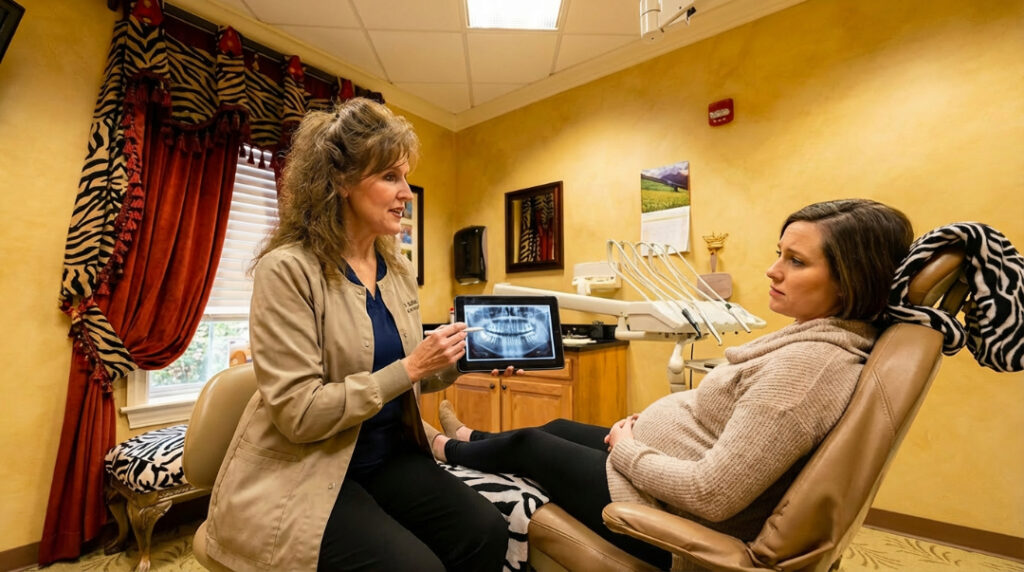
There are situations when delaying surgery is not an option.
Signs that immediate extraction is needed:
In these cases, the risk of not treating the condition outweighs the risks of surgery. Your dentist and OB-GYN will coordinate care to ensure safety, and may recommend a timely tooth extraction to stop the infection and protect both you and your baby.

If your situation is not an emergency, most dentists recommend postponing extraction until after delivery.
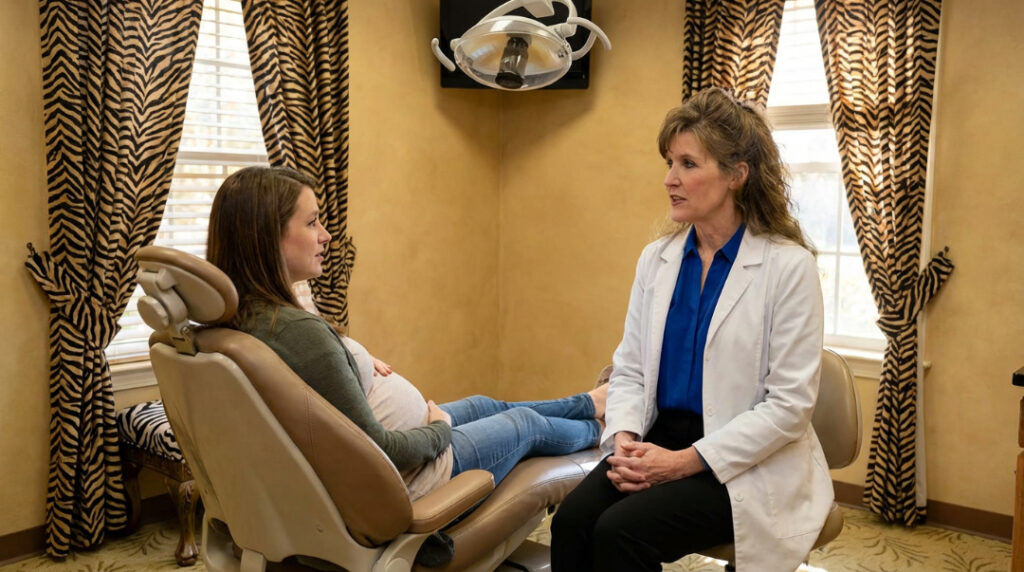
The American Dental Association and the American College of Obstetricians and Gynecologists both provide clear guidance:

If you live in Georgia, it is important to coordinate care between your OB-GYN and your dentist.
Cities like Atlanta, Savannah, Augusta, and Athens have specialists experienced in treating pregnant patients with dental emergencies. Buford Dentist provides consultations and safe treatment planning for expectant mothers.
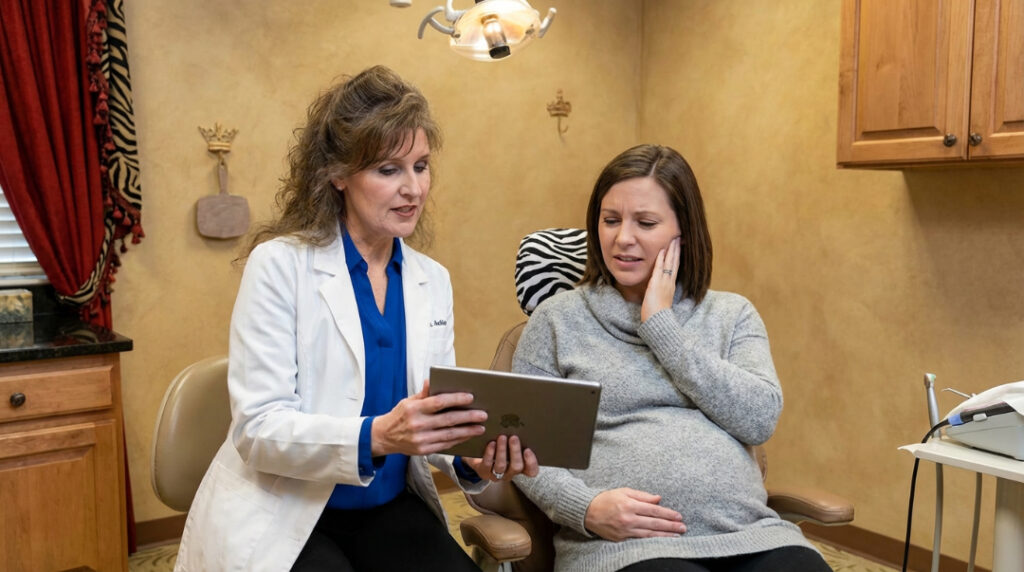

Pregnancy does not mean all dental care must stop. Preventive care is encouraged to avoid complications later.
Maintaining oral health is a key part of prenatal care. Gum disease and untreated infections have been linked to preterm labor. Regular dental visits help monitor risks and prevent complications.
Wisdom teeth removal during pregnancy is sometimes necessary, but timing and planning are critical. The safest approach is to treat emergencies promptly while delaying elective procedures until the second trimester or after delivery. By working closely with your OB-GYN and dentist, including trusted practices like Buford Dentist, you protect both your oral health and your baby’s safety.